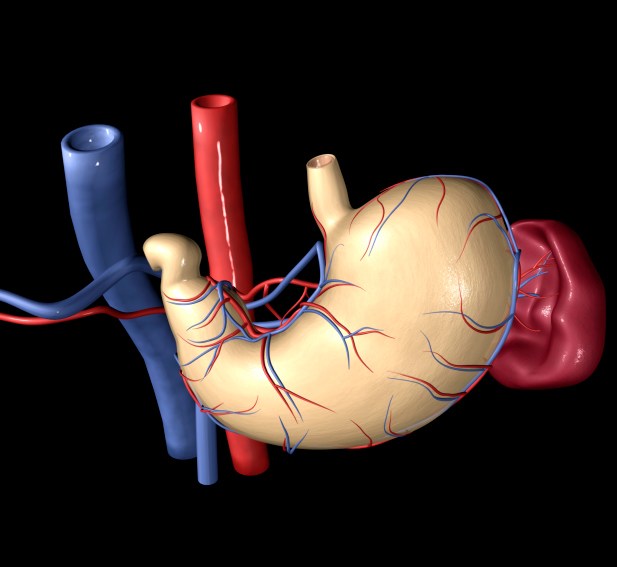Facts about Bulimia Nervosa: The vicious circle of binging and purging
 It’s uncommon to associate eating disorders with the elderly, but sadly these conditions plague older Americans as well. The largest demographic of seniors with eating disorders are women. But eating disorders and the elderly are not often discussed so getting exact statistics and information is difficult. There are many different types of eating disorders, one in particular is bulimia.
It’s uncommon to associate eating disorders with the elderly, but sadly these conditions plague older Americans as well. The largest demographic of seniors with eating disorders are women. But eating disorders and the elderly are not often discussed so getting exact statistics and information is difficult. There are many different types of eating disorders, one in particular is bulimia.
Bulimia nervosa is a condition where a person binges and purges, meaning they will consume high quantities of food and expel it from their body. This can be done in two ways: Purging bulimia and non-purging bulimia.
Two types of bulimia
Purging bulimia: The individual forces themselves to vomit or uses laxatives and enemas after eating.
Non-purging bulimia: The individual will practice methods such as excessive exercise or fasting to rid themselves of calories.
Bulimia nervosa is a life-threatening condition. People with bulimia are often overly critical of their body.
Causes and symptoms of bulimia
 Developing an eating disorder usually includes many factors. The factors that may come into play include controlling how a person looks and how much they weigh. Some factors that can lead to an eating disorder are societal expectation, poor emotional health, peer-pressure, and biology.
Developing an eating disorder usually includes many factors. The factors that may come into play include controlling how a person looks and how much they weigh. Some factors that can lead to an eating disorder are societal expectation, poor emotional health, peer-pressure, and biology.
Symptoms of bulimia include:
- A preoccupation with weight and shape
- Fear of gaining weight
- Feeling of being unable to control how much you eat
- Eating to the point of discomfort or pain
- Eating large amounts of food in one sitting (binging)
- Forcing yourself to vomit
- Abusing laxatives or enemas
- Restricting calories between binges
- Using dietary supplements to promote weight loss.
Risk factors for bulimia
Factors which may increase one’s risk of developing bulimia are:
- Gender – women tend to be at higher risk for bulimia
- Age – bulimia typically occurs in young adolescents
- Psychological and emotional issues – anxiety and low-self esteem may contribute to bulimia
- Societal pressures
- Work pressures – actors and dancers tend to be at higher risk of developing bulimia.
Treatment for bulimia
 The severity of the bulimia nervosa is what will determine the level of treatment required. Many treatments may be conducted simultaneously for the most effective recovery.
The severity of the bulimia nervosa is what will determine the level of treatment required. Many treatments may be conducted simultaneously for the most effective recovery.
Psychotherapy: Some forms of treatment are psychotherapy, which uses counseling to uncover the reason for bulimia and to help boost self-esteem.
Medications:Medications such as antidepressants may be prescribed if bulimia is caused by psychological issues. Hospitalization may be required to treat severe bulimia as well.
Take professional help: Treatment may be life-long even if someone has recovered from bulimia. Episodes of binging and purging may rise throughout one’s life so it’s a good idea to check in with a doctor or therapist if you worry you might relapse.
Listen: If you are a family member or a friend of someone who you suspect has bulimia, be open and willing to listen to them. Don’t judge them as they already judge themselves. Lastly, if you are unsure how to help, seek advice that you may be able to pass on to them directly.
Hormone deficiency in brain linked to overeating in mice
Brain hormones can control how much we eat and regulate eating behaviors. These hormones are suppose to signal when we become full or satisfied. But when they are low we never become full or satisfied. Continue reading…
-
Fat Loss through Interval Cardio Training
It seems that today everyone is most int
-
Why Ultrasonic Liposuction procedures Will probably Be Something You wish to Look at
If you will have been very diligent in doing exercises and holding you
-
Peter Ajello Lost 200 Pounds – Weight Loss Story of the Year
Pete Ajello before and after his weight lossSometimes a weight l
-
Variety of Swift Weight Reduction Ideas
A person might Imagine that dropping excess weight will be hard; never
-
Resolve to Have More Resolve for Weight Loss
Every January first, we compose a laundr
-
The Benefits of Training Partners
I have always thought it was strange tha
- DON'T MISS
- Lifestyle Diets
- Breakfast Made Easy With Oatmeal
- These Tips Can Help You Lose Weight And Look Great!
- Dietrine Carb Blocker Critique – The simple way To Reduce Body fat The natural way
- The Benefits of Infrared Saunas
- Exercise And Weight Loss Diet
- Losing Weight: Get Over the Genetics and Hormone Excuse
- Holiday exercise, workouts essential for weight loss, stopping weight gain
- Stop Counting Calories To Lose Weight And Try This Instead!
- Dont Ruin Your Diet By Making These Dieting Mistakes




